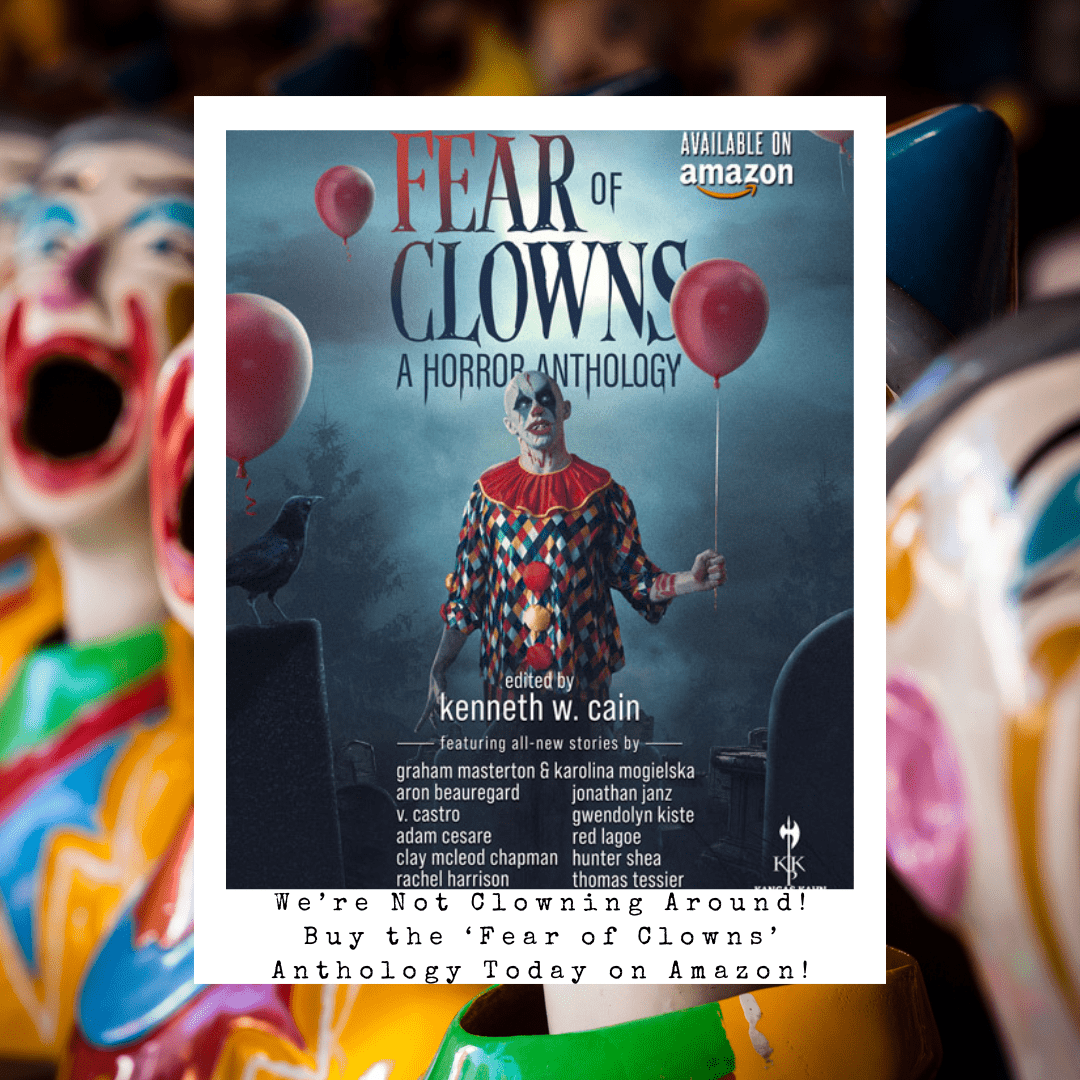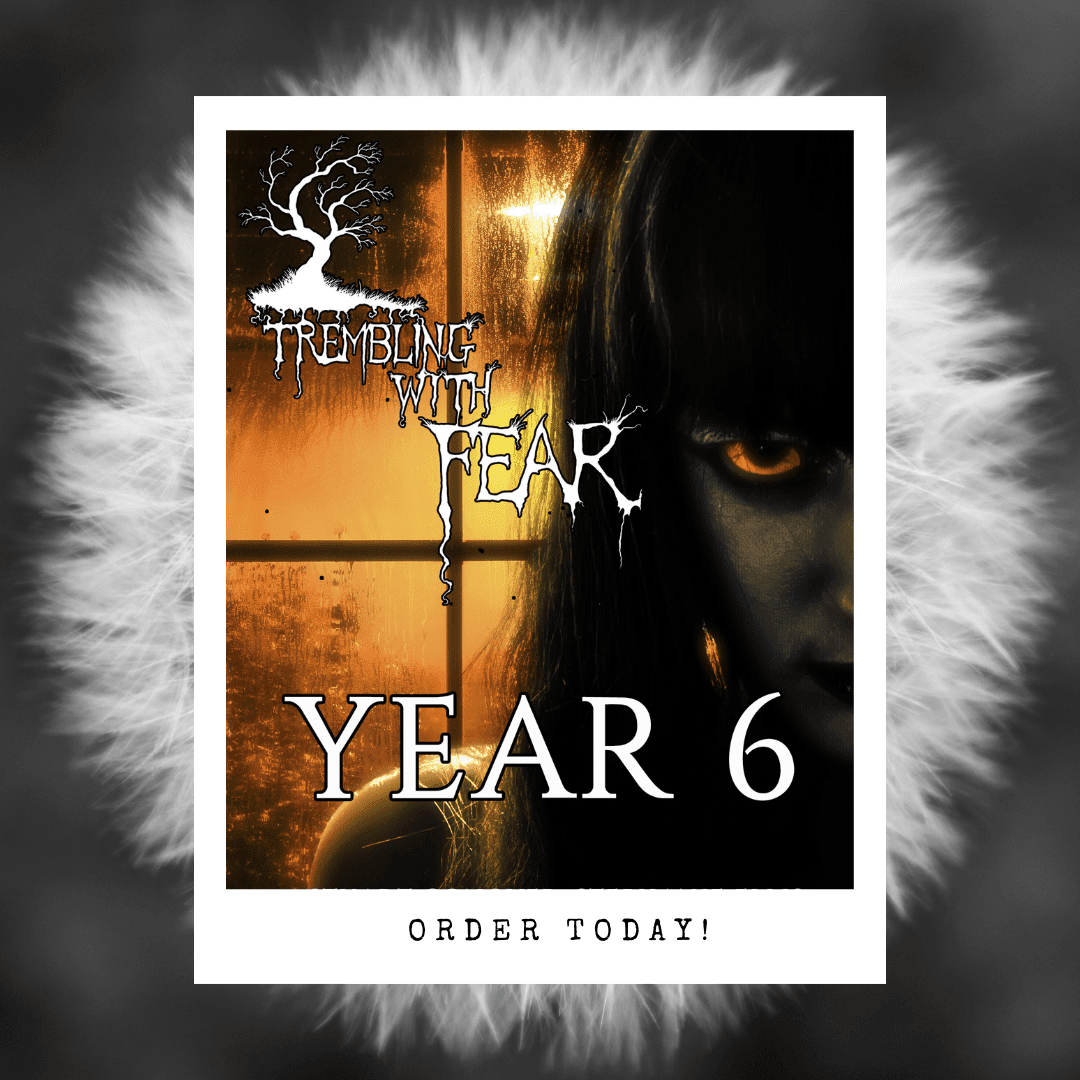Serial Saturday: The Sacrament by T. H. Sterling, Chapter Nine
Chapter Nine
“I can’t. Is there another exit?” His eyes darted along the walls.
Jesus moved further into the room. He pointed to an iron, crudely shaped lever, jutting out of the opposite wall from the entrance door. “The chute where they discard the remains of the sacrificed.”
He clenched his fists, his knuckles turning white. “No time. Do it now, before …”
Peter stumbled down the steps, the weapon dangling from his fingers. He hesitated before the lever, his heartbeat pounding in his ears. He shoved it upward, the mechanism groaning as if reluctant to obey.
A low rumble shook the chamber as stone scraped against stone, the cover sliding back, widening into a gaping hole in the floor. The putrid scent of death enveloped the room.
A deep, guttural growl echoed, chilling Peter to his core. He turned slowly, his breath catching as Jesus’s face contorted into a grotesque mask. His eyes blazed with feral hunger, his features twisting in a maddened snarl.
“Your flesh …” he croaked, his body shuddering as if fighting an invisible force. “Lord, please … help me.”
Peter froze. His heart pounded. His grip tightened on the sword.
Jesus took a hesitant step, his senses clearing. He dropped to his knees, his hands trembling in supplication.
“Lord, don’t abandon me to this urge.” The words, once a cry of desperation, now carried the force of an impossible battle. Protect me, he seemed to pray, but his voice cracked, breaking under the strain.
Peter’s gut tightened as he shuffled forward, torn between what he saw and the man he had to save. He reached out his hand to help the man up.
Jesus’s head snapped up, his gaze narrowing in hunger. His features twisted again, this time fully consumed by the monstrous transformation.
Peter didn’t hesitate. He bolted toward the platform as rapid footsteps thundered behind him. He yanked the stairs upward, but Jesus’s fingers gripped the edge, his strength unnatural as he dragged the steps down. Peter lashed out with a desperate kick, his heel smashing into Jesus’s forehead with a sickening thud.
Jesus staggered, his balance faltering for a moment before he lunged again. He jumped, seizing Peter’s ankle, yanking him off the platform. The sword flew from Peter’s grasp, skittering across the room.
They tumbled, crashing to the floor in a chaotic heap. Peter’s body slammed against the growling, snapping monster beneath him.
Peter clawed his way across the cold, blood-slick floor, the sharp sting of bruises and scrapes drowned out by sheer panic.
He grasped the hilt. With a desperate yell, he drove the blade into Jesus’s shoulder, the metal biting deep into flesh and bone. Recognition flickered in the man’s eyes.
“Please,” Jesus begged, sinking to his knees. His palms folded in prayer.
Peter wrenched the blade free, blood spilling in thick rivulets. Jesus’s face twisted in agony, his humanity slipping away as the beast within clawed its way to the surface. Peter raised the sword high, his muscles tensed. He brought the weapon down in a savage arc. The edge cleaved clean through, sending Jesus’s head tumbling into the gaping pit. His body collapsed in a lifeless heap, red pooling at its base.
Peter stood frozen. His sword hung limply in his hand, its blade slick with blood. The enormity of what he had done clawed at his mind, but there was no time to think. The heavy exterior door groaned open, its hinges shrieking like a warning bell. Peter turned, numbness covering him like a blanket.
The Rector stepped into the room, his figure framed by the flickering lantern light. His calm, unnerving dark eyes fixed on the body crumpled at Peter’s feet. For a moment, neither man spoke, the air thick with unsaid accusations.
“What have you done, Peter?” The Rector’s soft voice carried condemnation, rolling over Peter like a distant rumble of thunder before a storm.
Peter staggered back, his grip tightening on the sword. “I—I freed him. Ended all their suffering.”
“You could have joined us, a hand of God and keeper of the light, instead …” The Rector’s expression didn’t change, but his eyes narrowed, their intensity sending a shiver down Peter’s spine
“Centuries of devotion—gone,” the Rector growled, his voice rising with an edge of fury. “You think you’ve brought salvation? Who are you to question the will of God?” His tone hardened, and for the first time, Peter saw something beneath the calm facade—something dark, almost feral, flickering in the depths of his eyes. The Rector balled his fists, his body beginning to vibrate with a rage that seeped onto his face.
Peter took a step toward the edge of the pit, his legs shaking. “You’re no servant of the divine. You’re … you’re monsters hiding behind faith.” Revulsion rolled over him. Anger welled up at a deity who would let this happen. “Evil men led by a false God. I renounce it all.”
He had no time to mourn this loss of belief. The darkness of the pit seemed almost inviting, promising escape from the horrors around him. Without another word, he staggered forward and leapt into the void, not caring what happened to him next.
A distant scream echoed above him—“No!”—fading into the void as he crashed onto a slick, putrid mound. The vile stench of decay rose like a suffocating fog, clawing at his throat.
Peter scrambled down the grotesque pile, his palms sinking into the slimy remains of the orphans. He groped blindly through the suffocating black, not caring where he went.
Directionless, he stumbled through the endless void, each step dragging him deeper into an abyss that mirrored the emptiness in his soul. Tears streamed down his face, a torrent of anguish unleashed by the shattering truth: there could be no God. His whole life, everything he believed in was a lie. Torment poured from his soul in deep wails.
He slammed into a jagged stone wall, the impact splitting his brow. Warm blood dripped into his eye as he collapsed to his knees. Prayers he had once whispered with devotion now bubbled to his lips, but each felt like poison on his tongue.
He sank to the slimy ground, resolved to sleep in this blackness until the end took him. Time unraveled in the dark—days, years, or centuries—he didn’t know.
Over time, the relentless drip of water filled the silence, each drop mocking his parched throat. When his thirst clawed at him with unbearable ferocity, he staggered toward the sound, driven by desperate instinct.
A wisp of cool air brushed his face, stirring a flicker of hope in the suffocating gloom. Step by trembling step, he moved forward, until a hazy shaft of golden light pierced the shadows ahead. He blinked, momentarily blinded by the brightness.
Below the jagged cliffs where the Parish lay, the lake stretched out like a silver mirror, its stillness broken only by faint ripples that lapped at its shores. The icy water crept up his ankles, then his knees, its chill biting deeper with every step. When it reached his abdomen, he gasped at the frigid embrace.
He gulped in mouthfuls, fulfilling his thirst. He swam onward, each stroke growing heavier as the weight of his soaked robes dragged him down. His muscles burned with exhaustion, and at last, he surrendered to the pull of the water. As he went under, Peter let go, his thoughts quieting and he welcomed whatever would come next.
*
Peter’s eyes fluttered open. A violent cough shook his body, forcing water from his lungs in ragged bursts before he retched onto the sand. He collapsed back, enjoying the wonder of air filling his chest.
A vibration buzzed through his limbs, a foreign energy pulsing in his veins. For the first time in his life, he felt truly alive, as though the air itself carried a spark of divinity.
Joy surged within him. He filled with an all-consuming warmth he’d never felt before. In the depths of his soul, he knew this heat came from the light of divinity, revealing an unshakeable truth: God was real and had chosen Peter to end his only son’s torment. He rejoiced, his heart swelling with purpose. The Holy Spirit’s love coursed through him with electric tingles, affirming his new mission to spread the Lord’s word.
He sat up, a serene smile curving across his face. He stretched, taking inventory of his body, the aches and pains fading, replaced by a new vitality that hummed through his veins like liquid light. Glancing around, he realized he stood on the lake’s far side, beyond the cliffs and the reach of the Parish’s shadow.
He hummed as he waded back into the cool water to rinse off the mud that coated his limbs. He studied a tender spot on his ankle. The dirt washed away, revealing jagged teeth marks etched deep into his wounded flesh and the torn muscle underneath. Blood oozed in thick crimson rivulets.
His gut clenched, as horror sunk in, striking a blow to his new found truth. Was this the Lord’s plan, or the price of a sinner’s defiance?
He stood trembling, mulling over his limited options. The energy in his veins grew, and an unnatural calm settled, numbing his thoughts beyond caring.
A scent caught his nose—sweet, rich, divine, like honey steeped in wine. He froze, the aroma igniting a hunger so primal it twisted his stomach into knots. Foam gathered at the corners of his mouth, thick and bitter as it spilled down his chin.
“Pardon, father,” a soft, youthful voice called from behind him. “Are you in need of assistance?”
Peter’s lips curled upward, the warmth of his faith mingling with the ache of his urge.
God provides.








